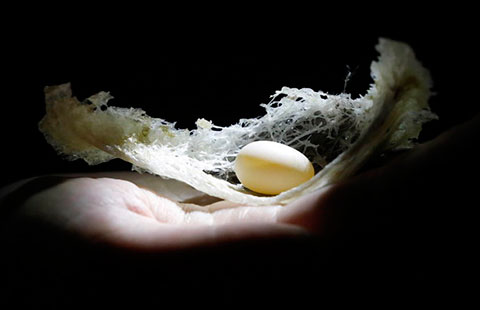Balancing act needed as the yuan weakens
(Agencies) Updated: 2015-02-25 11:26Experts say Chinese enterprises' dollar debt means depreciation must be carefully managed
China, like much of the world, is beefing up monetary stimulus to boost its economy. But unlike its peers, it probably will not let its currency depreciate to help.
Sustained weakness in the yuan would make it more expensive to repay the $1.1 trillion of debt that the Bank for International Settlements estimates is owed by Chinese companies. As a result, China has to offset interest rate cuts and other easing measures with steps to curb the yuan's 2.9 percent slide from its peak about a year ago.
The quandary has made the yuan one of only two major currencies that forecasters surveyed by Bloomberg expect to strengthen versus the dollar this year, the other being Mexico's peso. Any gains would risk blunting China's stimulus and hurt an economy that's slowing by making exports less competitive just after they suffered a surprise drop.
"It's a dilemma," said Claudia Calich, a money manager in London at M&G Ltd, which oversees about $1 billion of emerging-market assets. "They can't afford to let the yuan depreciate quickly because of concerns about the dollar debt. The authorities will perhaps slowly guide the yuan lower, but not in one go. It's quite a delicate balance."
The yuan's offshore rate, the one most commonly used in international trading, slumped to a 27-month low of 6.2899 a dollar on Jan 30, compounding last year's record 2.7 percent drop.
The losses will not continue, according to strategists surveyed by Bloomberg. The median of more than 30 forecasts puts the onshore yuan 1.5 percent stronger by the end of the year at 6.15 against the greenback. M&G's Calich is more bearish, predicting a decline to 6.50.
The currency fell 0.1 percent, the most in two weeks, to 6.2471 a dollar on Monday in Shanghai as the foreign-exchange regulator highlighted concerns over capital outflows. China is finding itself in a situation similar to the 1998 Asian financial crisis when emerging markets were pressured by funds leaving as the dollar strengthened, Guan Tao, head of the State Administration of Foreign Exchange's international payment department, said in Beijing on Feb 14.
The yuan's recent slide was spurred by a slowdown in the world's second-biggest economy and the monetary accommodation designed to address it. Gross domestic product expanded 7.4 percent in 2014, the slowest pace since 1990. Exports fell 3.3 percent in January after economists anticipated a gain.
In response, earlier this month China reduced the amount of reserves that banks are required keep on hand after cutting its benchmark interest rate in November for the first time in two years. Economists surveyed by Bloomberg expect the People's Bank of China, the country's central bank, to lower its 5.6 percent lending rate to 5.25 percent by the year's end.
The central bank has been trying to balance the need to buoy growth and efforts to contain a debt pile that has almost doubled in six years. The BIS, based in Basel, Switzerland, said in a report in January that China accounts for the biggest share of international borrowings in dollars, amounting to $1.1 trillion.
"China's economic fundamentals suggest more policy easing, but they also want to keep the yuan decline under control so as to allow an orderly unwinding of debt and not to infect the market," Banny Lam, the Hong Kong-based co-head of research at Agricultural Bank of China International Securities Co, said by phone on Feb 12. "I see more reasons arguing for a mild yuan drop or even a stable exchange rate, rather than a sharp depreciation."
UBS Group AG predicts the central bank will cut reserve requirements twice more before the end of this year.
- Qunar eclipses Ctrip as revenue growth surges
- NetEase sets up first office in the US
- LG Electronics plans OLED TV partnership with China, Japan firms
- Australia plans to charge foreign property buyers
- Amway sales dip in largest market
- Mobile online games rack up rapid gains
- Over 100 Chinese tourists visit Kenya
- Libras lick contest for red e-envelopes

















